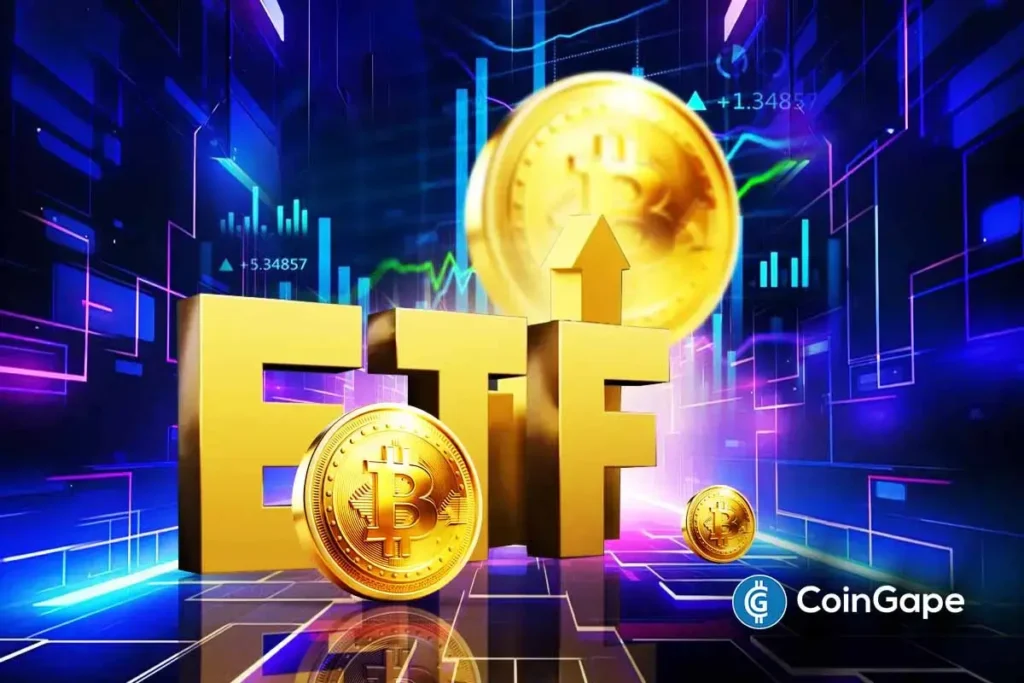Harvard University Expands Bitcoin ETF Holdings Despite Market Turbulence
Recent developments in cryptocurrency investments reveal a compelling strategy by Harvard University, as the Ivy League institution has expanded its holdings in Bitcoin Exchange-Traded Funds (ETFs) by a staggering 257%. A filing detail indicated that Harvard now owns 6.81 million shares of BlackRock’s spot Bitcoin ETF, known as IBIT, valued at approximately $442.8 million as of September 30. This contrasts sharply with the 1.9 million shares owned just a few months earlier in June. This bold move signals Harvard’s growing confidence in Bitcoin, even amid significant challenges faced by the cryptocurrency market, including substantial outflows from other funds.
Contrasting Strategies Amid Market Volatility
As it appears, Harvard is not solely focused on Bitcoin but is also increasing exposure to gold-backed ETFs. The institution has reported nearly doubling its gold ETF position, holding 661,391 shares of GLD valued at $235 million—a 99% uptick from earlier holdings. This diversification strategy might suggest a balanced approach to mitigating risks associated with high-volatility assets like Bitcoin. While retail investors have been reeling from recent market downturns, with losses becoming commonplace, Harvard’s investment perspective seems firmly rooted in a long-term outlook that anticipates future growth for digital currencies.
Overcoming Historical Skepticism
Interestingly, Harvard’s current position stands in stark contrast to its previously cautious stance on Bitcoin. In 2018, a Harvard economist controversially posited that Bitcoin might decline to as low as $100 rather than soar past $100,000 by 2028. This bearish forecast has proven to be misaligned with the cryptocurrency’s trajectory, as Bitcoin prices have surged well past that threshold, with peaks hitting $120,000 long before the predicted timeline. This evolution in thinking showcases a broader institutional acknowledgment of Bitcoin’s resilience.
Harvard’s Influence on Institutional Trends
Having significantly increased its Bitcoin ETF holdings, Harvard has now placed itself among the top 30 institutional holders of IBIT. According to Bloomberg analyst Eric Balchunas, this kind of commitment from a university endowment is atypical, as many endowments historically hesitate to invest through ETF structures. Harvard’s decision could set a precedent that influences other institutions to reconsider their strategies regarding Bitcoin and other cryptocurrencies, potentially accelerating the adoption of digital assets in mainstream investing.
Outflows Impacting the Crypto Landscape
Despite positive institutional movements, the broader ETF market is experiencing turbulence. Recent data from SoSoValue indicates a concerning trend of outflows, with Bitcoin products facing a three-day streak of significant withdrawals totaling $492 million on the latest trading day. The preceding day saw $869.9 million in outflows, marking it as one of the largest withdrawals since the launch of these products. Consequently, Bitcoin’s price has fluctuated, recently dropping by 1.24% to settle around $96,261, creating a ripple effect that could influence market sentiment.
The Long-Term Outlook for Cryptocurrencies
Despite the immediate challenges, some metrics suggest a bullish outlook for Bitcoin and the ETF market overall. Since their launch in early 2024, these Bitcoin ETFs have generated over $60 billion in net inflows and achieved a trading volume surpassing $1.5 trillion. BlackRock’s IBIT, in particular, dominates the U.S. Bitcoin fund market, controlling over half of it. Alternatively, Ethereum funds are struggling with heavy outflows, but products like the Solana ETF and XRP ETF are still attracting investor interest. Harvard’s significant commitment amidst market fluctuations illustrates the diverse strategies employed by institutional investors aiming to capitalize on the ever-evolving cryptocurrency landscape.


